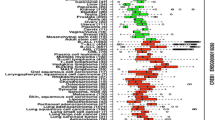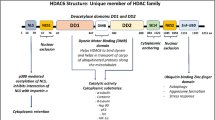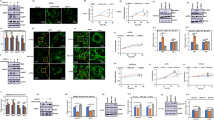Abstract
β-Catenin is crucial in the canonical Wnt signaling pathway. This pathway is up-regulated by CK2 which is associated with an enhanced expression of the antiapoptotic protein survivin, although the underlying molecular mechanism is unknown. AKT/PKB kinase phosphorylates and promotes β-catenin transcriptional activity, whereas CK2 hyperactivates AKT by phosphorylation at Ser129; however, the role of this phosphorylation on β-catenin transcriptional activity and cell survival is unclear. We studied in HEK-293T cells, the effect of CK2-dependent hyperactivation of AKT on cell viability, as well as analyzed β-catenin subcellular localization and transcriptional activity and survivin expression. CK2α overexpression led to an augmented β-catenin-dependent transcription and protein levels of survivin, and consequently an enhanced resistance to apoptosis. However, CK2α-enhancing effects were reversed when an AKT mutant deficient in Ser129 phosphorylation by CK2 was co-expressed. Therefore, our results strongly suggest that CK2α-specific enhancement of β-catenin transcriptional activity as well as cell survival may depend on AKT hyperactivation by CK2.




Similar content being viewed by others
Abbreviations
- CK2:
-
Acronym for the former name casein kinase II
- CK2α:
-
CK2’s catalytic subunit α
- Tcf/Lef:
-
T-cell factor/lymphoid enhancer binding factor
- DMAT:
-
2-dimethylamino-4,5,6,7-tetrabromo-1H-benzimidazole
- TBB:
-
4,5,6,7-tetrabromobenzotriazole
- IAP:
-
Inhibitor of apoptosis protein
References
Beachy PA, Karhadkar SS, Berman DM (2004) Tissue repair and stem cell renewal in carcinogenesis. Nature 432(7015):324–331
Altieri DC (2004) Molecular circuits of apoptosis regulation and cell division control: the survivin paradigm. J Cell Biochem 92(4):656–663
Kerbel RS (2008) Tumor angiogenesis. N Engl J Med 358(19):2039–2049
Nagy JA, Dvorak AM, Dvorak HF (2007) VEGF-A and the induction of pathological angiogenesis. Annu Rev Pathol 2:251–275
Neri D, Bicknell R (2005) Tumour vascular targeting. Nat Rev Cancer 5(6):436–446
Song DH, Dominguez I, Mizuno J, Kaut M, Mohr SC, Seldin DC (2003) CK2 phosphorylation of the armadillo repeat region of beta-catenin potentiates Wnt signaling. J Biol Chem 278(26):24018–24025
Song DH, Sussman DJ, Seldin DC (2000) Endogenous protein kinase CK2 participates in Wnt signaling in mammary epithelial cells. J Biol Chem 275(31):23790–23797
Hanada M, Feng J, Hemmings BA (2004) Structure, regulation and function of PKB/AKT–a major therapeutic target. Biochim Biophys Acta 1697(1–2):3–16
Nicholson KM, Anderson NG (2002) The protein kinase B/Akt signalling pathway in human malignancy. Cell Signal 14(5):381–395
Fang D, Hawke D, Zheng Y, Xia Y, Meisenhelder J, Nika H, Mills GB, Kobayashi R, Hunter T, Lu Z (2007) Phosphorylation of beta-catenin by AKT promotes beta-catenin transcriptional activity. J Biol Chem 282(15):11221–11229
Tian Q, Feetham MC, Tao WA, He XC, Li L, Aebersold R, Hood L (2004) Proteomic analysis identifies that 14–3-3zeta interacts with beta-catenin and facilitates its activation by Akt. Proc Natl Acad Sci USA 101(43):15370–15375
Di Maira G, Salvi M, Arrigoni G, Marin O, Sarno S, Brustolon F, Pinna LA, Ruzzene M (2005) Protein kinase CK2 phosphorylates and upregulates Akt/PKB. Cell Death Differ 12(6):668–677
Guerra B (2006) Protein kinase CK2 subunits are positive regulators of AKT kinase. Int J Oncol 28(3):685–693
Tapia JC, Torres VA, Rodriguez DA, Leyton L, Quest AF (2006) Casein kinase 2 (CK2) increases survivin expression via enhanced beta-catenin-T cell factor/lymphoid enhancer binding factor-dependent transcription. Proc Natl Acad Sci USA 103(41):15079–15084
Tapia J, Jacob G, Allende CC, Allende JE (2002) Role of the carboxyl terminus on the catalytic activity of protein kinase CK2alpha subunit. FEBS Lett 531(2):363–368
Votin V, Nelson WJ, Barth AI (2005) Neurite outgrowth involves adenomatous polyposis coli protein and beta-catenin. J Cell Sci 118(Pt 24):5699–5708
Rodriguez DA, Tapia JC, Fernandez JG, Torres VA, Munoz N, Galleguillos D, Leyton L, Quest AF (2009) Caveolin-1-mediated suppression of cyclooxygenase-2 via a beta-catenin-Tcf/Lef-dependent transcriptional mechanism reduced prostaglandin E2 production and survivin expression. Mol Biol Cell 20(8):2297–2310
Ponce D, Maturana JL, Cabello P, Yefi R, Niechi I, Silva E, Armisen R, Galindo M, Antonelli M, Tapia JC (2011) Phosphorylation of AKT/PKB by CK2 is necessary for the AKT-dependent up-regulation of beta-catenin transcriptional activity. J Cell Physiol 226(7):1953–1959
Wang G, Ahmad KA, Harris NH, Ahmed K (2008) Impact of protein kinase CK2 on inhibitor of apoptosis proteins in prostate cancer cells. Mol Cell Biochem 316:91–97
Acknowledgments
The authors thank Maria Ruzzene (University of Padova, Italy) and Angela Barth (Stanford University, USA) for providing the plasmids encoding AKT-S129A and GFP-β-catenin, respectively. The authors also wish to thank Gonzalo Cabrera (ICBM) for his assistance in the epifluorescence microscopy. This study was supported by the Fondecyt grant numbers 15010006 (K.M., R.A. & J.C.T.), 1095234 (M.G. & J.C.T.), and 11070116 (J.C.T.).
Author information
Authors and Affiliations
Corresponding author
Rights and permissions
About this article
Cite this article
Ponce, D.P., Yefi, R., Cabello, P. et al. CK2 functionally interacts with AKT/PKB to promote the β-catenin-dependent expression of survivin and enhance cell survival. Mol Cell Biochem 356, 127–132 (2011). https://doi.org/10.1007/s11010-011-0965-4
Received:
Accepted:
Published:
Issue Date:
DOI: https://doi.org/10.1007/s11010-011-0965-4




